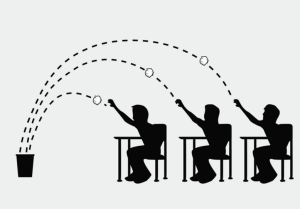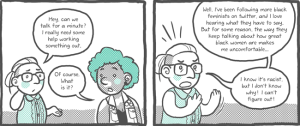
A person sits outdoors, holding an open journal in their hand and looking thoughtful.
I’m calling out to everyone who’s ever survived a suicide attempt.
Fellow suicide attempt survivors, we’re in a difficult and painful place. The society that surrounds us stigmatizes suicide and vilifies us. It’s a society that dismisses our pain and discourages us from seeking help.
In the midst of the stigma attached to suicide, it’s incredibly important – or rather, essential – to remind ourselves that we’re valuable and deserving of love and support.
It’s essential because we’re hurting. Surviving a suicide attempt doesn’t mean we overcame the pain we felt in the first place – which is why we’re likely to attempt suicide again. In this difficult time, we need love, validation, and positive messages.
Here are six affirmations I desperately needed after my suicide attempts.
If you’re a suicide attempt survivor, remind yourself of these truths regularly. Say them out loud, write them down, or do whatever else helps you believe them.
You don’t only deserve these messages – you probably need them as urgently as I did.
1. Your Pain Is Valid
Suicide is a reaction to pain.
It’s not a good reaction or a particularly constructive one, but it’s a reaction none the less.
In light of the stigma society places on suicide, it’s understandable if you feel like your pain is being invalidated. Often, suicidality isn’t taken seriously until it’s too late. Prior to this, we’re often told that we’re not really suicidal but rather seeking attention or being overdramatic.
Let me start this list by saying that your pain is valid.
No, you’re not being overdramatic. No, you’re not unjustified in feeling hurt. No, trying to end your life doesn’t invalidate the traumas, circumstances, and pain you’ve endured in your lifetime.
Pain is a horrible thing to feel, but we need to allow ourselves to feel it. We need to acknowledge it, and above all else, we need to note it as valid.
Once we acknowledge the pain, we can begin to heal from it.
2. Attempting Suicide Doesn’t Mean You’re Weak
I’ve written before about the hurtful and ableist myth that suicide is inherently manipulative, weak, and cowardly.
You’ve probably heard people say that suicide is “the easy way out,” and that it’s a cowardly thing to do. You’ve also probably heard the idea that all suicide attempts are actually attempts to manipulate others or seek attention.
Of course, there are some people who threaten suicide as a way of manipulating others. This form of abuse is definitely not okay, but it doesn’t mean that everyone who attempts suicide is being manipulative.
These messages are incredibly hurtful and simply untrue. Attempting suicide means you tried to end your life. It’s not necessarily a reflection of your personality.
At the same time though, it’s not inherently wrong to be weak or to seek attention. We all have moments of weakness, and we all need attention and love sometimes.
Whenever you come across these messages, remind yourself that they’re untrue, ableist myths.
3. You Deserve Adequate Treatment and Support
Some of us attempt suicide because it feels like we’re fighting a losing battle with our minds.
After suicide attempts, that battle still rages on. That’s why it’s important to find treatment and support.
But it’s common for suicide attempt survivors to feel like they don’t deserve help because they did something that’s perceived as “weak.” Personally, I felt like I had given up the fight. I often asked myself why I should bother asking someone to help me if I didn’t even want to help myself.
It’s also common to want to avoid the additional stigma associated with finding mental health care.
I’m here to tell you that you deserve that treatment and support, even if you feel like you don’t.
You deserve to work with psychologists and medical practitioners who make you feel safe. This doesn’t make you picky.
You deserve to take advantage of state-funded psychological care if you can’t afford private care. This doesn’t make you a “freeloader.”
You’re justified in holding medical practitioners accountable if they discriminate against you or disregard your feelings and experiences.
You deserve healthcare that is effective. You deserve to take time and effort to find the most effective healthcare methods for you.
Sometimes the treatment you need includes medication. Sometimes it includes seeing a psychologist or counsellor. Sometimes it includes rigorous self-care. Sometimes it includes group therapy.
Treatment looks different for everyone, but everyone deserves it.
4. You Deserve Friends Who Validate Your Experience
Earlier this year, I sat in a class discussion group on the topic of death. When the topic of suicide came up, a friend of mine – who knew about my attempts – said that everyone who attempts suicide is simply seeking attention and being manipulative.
As I said before, some people do use suicide to abuse others. But their behavior doesn’t make it okay to invalidate all our experience. Since she knew I battled with suicidality and she dismissed all suicidal people as manipulative, she implied that I was manipulative, and that my suicide attempts were a case of me seeking attention and not a result of my trauma and mental illnesses.
I think a part of me wanted to cut this person from my life even then.
But a small voice told me that it wasn’t fair to do that. I had internalized what she’d said and I subconsciously believed that it was okay for her to invalidate my experience, because I thought that my experience was invalid.
That friendship ended for a number of different reasons, and I’m glad it did. Ultimately, I needed to surround myself with people who validated my experience in order to heal.
You have the right to distance yourself from people who invalidate your experience and make you feel awful for being suicidal. I know it’s not that easy to cut off toxic relationships, but if you can, please remember that you’re allowed to do so.
You deserve loving, supportive friends who try to understand and validate your pain.
I deserve that validation, and so do you.
5. You Don’t Have to Feel Guilty
If I think back to my suicide attempts, one core feeling fills me to this day:
Guilt.
I feel guilty about attempting suicide. I felt like I inconvenienced my friends and family awfully. I felt guilty about taking up space in a government hospital bed that could have been used for someone else. I felt guilty for making people worry about me.
I’m not religious, but I internalized the idea that suicide is a sin – and that added to the guilt.
Overall, I felt like I burdened and irritated people by acting on my suicidal thoughts.
I constantly asked myself whether I should feel guilty or whether I should try to work through that feeling. A voice in my head said, “Yes. You should feel guilty. You’re taking advantage of your friends’ patience. You’re a bad person.”
Another voice responded to this by saying, “No. You don’t need to feel guilty for responding to your pain. You would do the same thing for your friends. Your mental illness doesn’t make you a bad person.”
I didn’t know it at the time, but the second voice was right. I didn’t need to feel guilty and neither do you.
Being suicidal doesn’t make you a bad person. You’re not a burden.
If you’re feeling guilty, work through that feeling gently. Allow yourself space to feel whatever you’re feeling – but also know that you deserve to feel better.
6. It’s a Good Thing You Survived
After a failed suicide attempt, it’s common to feel like you’re a failure. It’s natural to feel like it was a mistake that you survived.
I’m not going to say that you survived for a reason: I don’t believe in fate, and I don’t think those who don’t survive suicide attempts die for a reason.
But I do believe that pain is temporary and that soon, we will find joy again – and that joy will make it worth surviving.
***
Being suicidal is difficult. Living after having survived a suicide attempt is also incredibly difficult.
If you’re a suicide attempt survivor, I want you to know that you’re not alone. I acknowledge you, and I want you to know you are valued and held.
Healing is difficult in the midst of all the toxic messages we receive. Please remind yourself of these crucial, urgent counter-messages in times of need.
If you or someone you know are thinking about suicide, you can always call:
- The National Suicide Prevention Helpline: 1-800-273-8255
- The Trevor Lifeline for LGBTQIA+ youth: 1-866-488-7386
- Trans Lifeline: 1-877-565-8860
[do_widget id=’text-101′]
Sian Ferguson is a full-time freelance writer based in South Africa. Her work has been featured on various sites, including Ravishly, MassRoots, Matador Network and more. She’s particularly interested in writing about queer issues, misogyny, healing after sexual trauma and rape culture. You can follow her on Twitter and Instagram. Read her articles here.
Search our 3000+ articles!
Read our articles about:
Our online racial justice training
Used by hundreds of universities, non-profits, and businesses.
Click to learn more




















